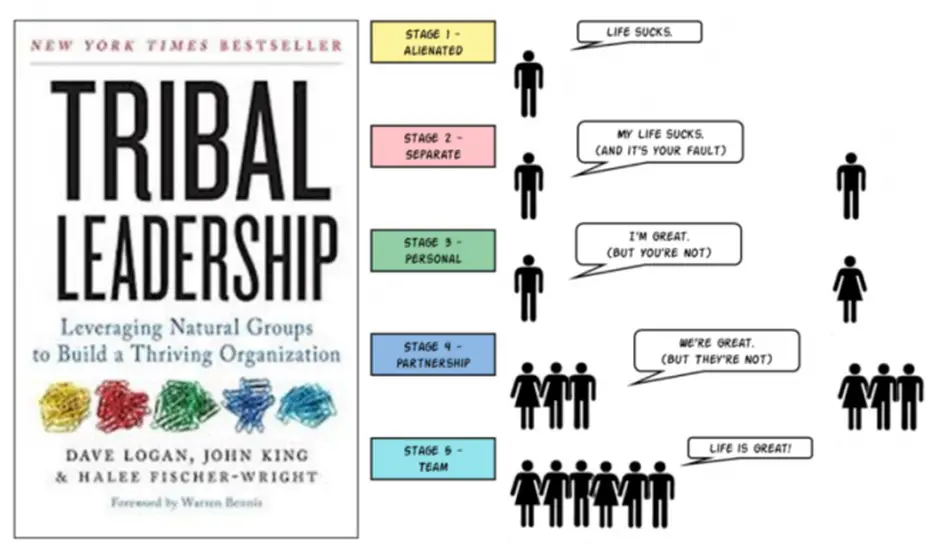 "Just once I’d like to wake up with more time on my hand than hours in the day.” — Will Salas In the Science Fiction film, “In Time,” Justin Timberlake portrays a character named Will Salas, who lives in the ghetto.In the movie, there is no “money.” Instead, time is the only currency, and everyone has a digital clock embedded into their arms.  Until the age of 25, your clock doesn’t start ticking. Once you hit your 25th birthday, you have just one year of life that starts ticking down immediately. Everything costs time. For example, in the movie, a cup of coffee doesn’t cost 4 dollars, but rather, 4 minutes. There are small devices, similar to the devices we plug our credit cards into, that add or take away time when scanned on a person’s arm clock. After age 25, you stop physically aging. Whether you’re 28, 49, or 302, you look as you did when your clock started ticking. You live as long as you have time. The people living in the ghetto are living day-to-day, while those in the highest “Time Zone” can conceivably live forever. In the ghetto, people literally are living day-to-day. They get time added to their “clocks” at the end of every shift — enough to get them to the end of the next shift. They rarely have more than 24 hours on their clocks. As a result, they can’t stop thinking about or “checking” their time. They are required to work, every single day, in order to survive. As soon as your clock runs out, you die. Changing time zones In the movie, Economic Status is portrayed as “Time Zones,” which are not easy to transfer one for another. You have to pay a great deal of time to get from one zone to the next. Here’s the break-down: To get out of the ghetto and into the lower-middle class Time Zone costs One month’s Time To get from the lower-middle-class Time Zone into the middle-class costs Two month’s Time To get from the middle-class Time Zone into the upper-middle-class costs Six month’s Time To get from the upper-middle-class Time Zone into “New Grenich,” which represents the mega-wealthy (i.e., 1% of 1%) costs One Year‘s Time To cross a Time Zone, you are required to pay a great deal of money. For someone living in the ghetto, the system is not designed to ever have a full month saved-up. Thus, ever getting out the ghetto is practically impossible. Time slows down in the higher zones. When you’re living day-to-day, time goes very quickly. You have no future to look forward to. You don’t have time to vacation and think. You’re in survival mode. Hence, time goes very quickly. Will Salas (played by Timberlake) finds his way out of the ghetto and into New Grenich and despite his best acting, is clearly perceived by others as being from somewhere else. “You’re not from here are you, Mr. Salas?” the waitress asks him. “What gives you that impression?” Will responds. “You do everything too quickly,” she responds back. As you go up in “Time Zones,” life slows down. You’re no longer living day-to-day, perhaps now you’re living month-to-month. You have a little more time to waste on entertainment and, perhaps, if you’re one of the smart ones, you begin investing a little here and a little there into your future. But even still, the cost of living goes up with each Time Zone you’re in. So it’s not exactly easy to save up. You have to keep up with your neighbors, for example. You’re required, socially, to have a car and home that fits the culture. The food costs just a little bit more, and so do your clothes. Life is driven by marketing and social acceptance for most people. Making money is one thing, managing it is entirely different. In New Grenich, it can cost a few month’s of “Time” to stay in a hotel and several weeks to eat a fancy meal. Money, or in this case, “Time,” doesn’t mean the same in different zones. Spending 8 weeks for a meal can, strangely, make complete sense in one situation, where that much “Time” is enough to get you killed in the ghetto. Those 8 weeks could change the entire trajectory of a family living in the ghetto…if they knew what to do with it. To even get into New Grenich (i.e., among the mega-wealthy) costs One Year of Time. Once you’re in, everything costs a fortune. However, the ability to make money in that Zone is also completely skewed as well. Although the ideas from In Time is science-fiction in nature, they actually have real life application based on Harvard Economics. Economic mobility in America A few economists at Harvard began a project known as “The Equality Of Opportunities Project,” several years ago. The research was so revolutionary and important that it has since expanded into something much bigger and more global. The goal of the project, “Is to develop scalable policy solutions that will empower families throughout the United States to rise out of poverty and achieve better life outcomes.” One of the fundamental outcomes they’ve discovered in their research is that location matters, a lot. As it states on the website: Children’s lives are shaped by the neighborhood they grow up in. As part of the research, each county within each state was measured for its “social mobility,” which is a term that explains the chances of someone advancing in economic status within their lifetime. As they state on the website: In a series of studies beginning in 2014, we have shown how the neighborhoods in which children grow up shape children’s outcomes in adulthood… Social mobility varies widely both across cities and across neighborhoods within cities in the U.S. On average, a child from a low-income family raised in San Jose or Salt Lake City has a much greater chance of reaching the top than a low-income child raised in Baltimore or Charlotte. However, the Opportunity Atlas shows that there are neighborhoods within Baltimore and Charlotte that have higher rates of upward mobility than the average neighborhood in San Jose or Salt Lake City. Put simply, proximity matters. Environment matters. Where you are born matters. Where you choose to stay matters. The reason is very simple; within any given environment or “system,” are a set of options. You can only make choices if you have options. Let me repeat that, you can only make choices if you have options. This idea became starkly real to me when my wife and I moved from Orem, Utah, a county in the 90th percentile for upward social mobility, to Clemson, South Carolina where I began my PhD research in Organizational Psychology. Shortly after moving to Clemson, my wife and I became foster parents of three children who were from a county bordering Clemson, Oconee, which happens to be in the 9% percentile of upward social mobility. Put simply, if you’re born poor in Oconee County, your chances of breaking out of poverty are slim to none if you stay in Oconee County. As economic strategists and analyst, Mark Caine, has said, “The first step toward success is taken when you refuse to be a captive of the environment in which you first find yourself.” It was clear when we got our children that they came from a different world than we did. They didn’t really know how to act in our environment, and we had to learn patience, empathy, and love beyond anything we’d previously been exposed to. As they say, you can’t develop courage without the lion. You can’t develop empathy and love without being required to give it. Life, then, becomes the ultimate context for growth if you’re willing to put yourself in situations that force you out of your comfort zone. Our three kids were incredibly limited by their prior environment. They didn’t have many options. They had parents who were generally high on drugs and didn’t have the capacity to provide a good life, let alone healthy food and a ride to school, to their children. When our kids were placed in our care, their availability of options radically expanded. Because they had more and better options to choose from, they then had a different set of choices. In other words, their ability to exercise their “free-will” was expanded. Again, you cannot make choices without options. And options are context-dependent, which means every environment or “context” provides different options. Because no two people have the same context, no two people have the same “free-will.” Instead, we all have what social psychologist, Jeffrey Reber, calls, “Contextual Agency” — which is to say, our ability to make choices is shaped by the context we are in. For instance, you wouldn’t be able to read these words on your computer or smartphone if you were living 30+ years ago. The technology didn’t exist. You’d be reading on a newspaper or through some other means. If you lived 150 years ago, you wouldn’t be able to fly across the world. That simply wasn’t an option given the situation. Thus, there are many things we take for granted, which are purely based on the situation we find ourselves. According to Dr. Ellen Langer, a prominent Harvard psychologist: “Social psychologists argue that who we are at any one time depends mostly on the context in which we find ourselves.” But then, Langer takes this idea a step further by asking a key question and then providing the solution (emphasis mine): “But who creates the context? The more mindful we are, the more we can create the contexts we are in. When we create the context, we are more likely to be authentic. Mindfulness lets us see things in a new light and believe in the possibility of change.” It is our greatest responsibility to shape our individual and collective environments to match our values and ambitions. Or, as Dr. Marshall Goldmish said in his book, Triggers: Creating Behavior That Lasts — Becoming the Person You Want to Be, “If we do not create and control our environment, our environment creates and controls us.” 5 stages of tribal culture There is a brilliant book, Tribal Leadership: Leveraging Natural Groups to Build a Thriving Organization, Dave Logan, John King, and Halee Fischer-Wright share their expansive research on different cultural groups in America. They break-down “Tribal Culture” into 5 levels, similar to how “In Time” breaks-down Time Zones. The 5 stages of tribal culture
In order to get out of Stage 3 and into Stage 4, you need to start working with other people. As a friend of mine and near billionaire has said, “You go from ‘I do it,’ to ‘We do it,’ to ‘They do it.’” Most people never get beyond “I do it,” in their work. They never learn to delegate or collaborate. They have their own jobs and they get paid to do them. Even most entrepreneurs and freelance creative people never get beyond Stage 3 thinking. Very few realize that the skills that get you out of Egypt are not the same skills that get you into the Promised Land (to use a Biblical analogy I learned from Dan Sullivan). In other words, what got you here won’t get you there. The thinking that got you here won’t get you there. As Albert Einstein has said, “We can’t solve problems by using the same kind of thinking we used when we created them.” Your thinking fundamentally needs to change as you upgrade environments, or else you won’t stay in those environments for long. In the important book, The Lessons of History, famed historians Will and Ariel Durrant explain the key lessons they gleaned while studying the history of the world for several decades. One of those key lessons is that, as a society has an increase in freedoms, they must simultaneously increase their intelligence to match the level of their freedom, or their freedom will eventually be lost. This is one of the key themes influencing the rise and fall of nations. There is a surge of energy and enthusiasm which generally comes in the form of revolting against an existing system. There are a new law and order created and particular Stage 4 group band together and becomes a Stage 5 Phenom that changes the world. However, according to the Durrants, when a social group experiences an intense increase of social freedoms — wherein they have an abundance of freedom and choice — their level of intelligence needs to increase to match their level of freedom, or else that freedom will be squandered, which is often the case. Hence, America has a high potential of collapsing as the world superpower. The Durrants expect that the American fall will occur sometime in the next 200–300 years. However, they may not have accounted for globalization and the internet and exponential technologies. The important point here is that, in order to thrive in a higher-level environment, your level of intelligence needs to rise to meet the new rules and demands of the higher-level environment. Otherwise, you won’t remain in that environment for long. The skills that got you out of the ghetto are not the skills that will allow you to thrive in New Grenich. The rugged individualist mindset that got you out of the ghetto won’t get you very far among the super-wealthy, where connections and mutual trust are everything. It’s been very interesting to observe these social principles within the walls of my own home. When we brought our beautiful children into our home, they had no comprehension of the “rules” they needed to understand to thrive in our middle-class to upper-middle-class environment. They needed to be taught the rules. They’re still learning the rules. And these rules aren’t meant to stamp out individuality. Rather, they are social and economic rules for not destroying themselves and going back into the ghetto, their principles for thriving and succeeding in society, in work, and with people. In other words, we attempt to teach correct principles and let them govern themselves. At some point, it will be their choice to live what we taught them, to revert back to their native environment, or to advance beyond what we’ve taught them. Conclusion Getting from one “Time Zone” to another isn’t necessarily easy. The movie, In Time, makes that abundantly clear. The system isn’t set up for people to advance easily. Social cultures make it even harder. By very nature, human beings are the social product of their environments. We develop bonds and those bonds keep us from wanting to advance ourselves and potentially destroy those bonds. The hardest leap from one economic status to another is likely from Stage 1 to Stage 2 — getting out of the ghettos and living from day-to-day to lower-middle-class where you’re living month-to-month. The easiest jump is likely from Stage 2 to Stage 3 — getting out of the victim mindset and developing a sense of responsibility for the outcomes you create in your life. One reason this isn’t that hard of a leap is that you can generally maintain the same peer and social groups, even though a disconnect will develop. You can generally get into Stage 3 by getting educated, reading some books, and having a little bit of personal ambition. Without question, making any one of these jumps is difficult — even going from lower-middle-class to middle-class. The fastest way to make a jump is through proximity. You want to get yourself around people who are in higher-level systems and learn from them. You want to understand the laws and principles that generate their success. You need to understand how they operate socially. Because socially, there are fundamentally different rules at each stage for thriving. Again, the skills that got you out of Egypt will keep you stuck in the desert. Dr. David Hawkins explains, “The unconscious will only allow us to have what we believe we deserve. If we have a small view of ourselves, then what we deserve is poverty. And our unconscious will see to it that we have that actuality.” Every culture has an embedded mindset and belief system. Hence, 95% of all behavior is unconscious and outsourced to the environment. Your environment is the ultimate feedback loop, demonstrating where you are at the subconscious level. Your environment is a pretty accurate mirror reflecting back to you your subconscious belief system. How you behave and treat other people is a reflection of your current situation. Different thinking, different behaviors, and relating differently to others will create a fundamentally different situation around you. You can definitely jump from one Time Zone or Economic Status to another. However, you can never get out of one and stay in another on your own. You always need help from other people and other sources. The most help is needed in getting people from Stage 1 to Stage 2. Radical interventions, extreme separation from family and friends, and economic help from outside parties is almost always required Another extremely difficult leap is from Stage 3 thinking and cultures to Stage 4. In order to make this leap, you have to unlearn all of the rules that made you relatively successful in the first place. You have to put off your rugged individuality and begin thinking much, much bigger. You need to realize that individuality can actually be a poison. As Dr. David Hawkins explains in his book, LETTING GO, “It is the illusion of individuality that is the origin of all suffering.” Instead of seeing yourself as a lone individual, you recognize yourself as a single factor within a larger system. You realize that your possibilities are shaped by context and that self-made is an illusion. Rather than trying to see what you can do alone, you now recognize that you could go 100X further and faster by collaborating with other people. According to Harvard psychologist, Robert Kegan, only 8% of the population reaches this level of “conscious evolution,” wherein they move from an individual to a part of a collective. But not just any collective. You become a part of collaborative and synergistic groups where highly creative and innovative thinking occurs. This is where “mission” and the desire to do real good happens — where all parties are completely secure in their own ability to survive and take care of their base needs. Abundance, giving, creativity, gratitude, and growth are the focus of these groups. Always learning and upgrading. The third most difficult leap is from Stage 4 to Stage 5. This is basically going from the top 3–5% of the population to the top 1%, and more accurately, the 1% of the 1% — Those who are the best in the world at what they do, and are the highest paid. This is equivalent to going from college to professional athletics. It’s much easier to go from High School (Stage 3) to College (Stage 4), but much much harder going from Stage 4 to Stage 5. Be → Do → Have You have to ‘Be’ the right kind of person first, then you must ‘Do’ the right things before you can expect to ‘Have.’” — Zig Ziglar Making any of these jumps is completely possible. Perhaps the most fundamental decision any person can ever make is this one:
Do you believe you can choose what you become? Or do you believe your course is set for you at birth? Do you “discover” yourself or do you “create” yourself? You can’t change nature…. or, nature is change….Which side of the coin do you choose? Whichever perspective you choose, your brain will go about finding any and all information it can to support that bias. As Dan Sullivan has said, “Your eyes can only see and your ears can only hear what your brain is looking for.” Psychologists call this “selective attention.” What you focus on expands. You see what you believe is real — and then it becomes real for you in a self-fulfilling prophecy. As Dr. Stephen Covey said, “You see the world, not as it is, but as you’ve been conditioned to see it.” Making this shift starts by recognizing that for quite a while, you’ve been going through the motions. Your thoughts, beliefs, attitudes, behaviors, and even desires are the product of your environment. Thanks to a global world that makes information abundant, it isn’t hard to become exposed to other ways of life. However, you must realize quickly that most of the information online is complete trash. Which is why Basecamp Founder, Jason Fried, has said, “I’m pretty oblivious to a lot of things intentionally. I don’t want to be influenced that much.” Once you begin upgrading your mindset and environment, and once your priorities and goals are clear — then you don’t want to be swayed or distracted by most of the low-level information out there. You must realize that most of the information produced is from Stage 2 and Stage 3 cultures. Therefore, if you consume that level of information, then those mindsets will be embedded into your subconscious thinking. People in Stage 4 and Stage 5 cultures do not consume the same information as do people in Stage 2 and 3 cultures. For example, I recently spoke at a mastermind done by Bo Eason, who used to be a professional football player and is now a very highly paid public speaker. Bo’s son, Axel, intends on being the first person to go pro in both football and basketball. Therefore, Bo doesn’t allow Axel to watch the NFL on public television. According to Bo, sports on TV is made for fans and consumers, not the players. “The pro’s don’t want that crap,” Bo told me. Pro’s study film, practice, and play the game. When you’re a real pro, you don’t consume how fans consume. You do the work. You’re too busy creating and learning and growing and living your life. Are you a fan or a pro? Are you a consumer or creator? A key strategy for making any jump is to, “Assume the feeling of your wish fulfilled,” meaning, you assume the posture, attitude, and emotions of the people operating at the higher level. You affirm to yourself who you are and then operate from that affirmation. This may sound like “acting as if,” and it actually is. But it’s important to realize that we are always “acting” in a role. All of life is acting. In every situation, you are assuming a character. You’re playing a role based on the other people around you. In some situations, your role may be an employee, while in others it may be a parent, or child, or friend. In all cases, you are acting a part. You can change your role. You can change the stage. You can choose to be different. But it must start in your state of being. Rather than operating subconsciously as the majority of people do, you must make a conscious decision about who you intend to be and where you intend to go. You must then BEHAVE from that decision. When you act from that decision, then you create the outcomes you are seeking. You will become the person you intend to be, rather than the person your circumstances led you to be. Ready to upgrade? I’ve created a cheat sheet for putting yourself into a PEAK-STATE, immediately. You follow this daily, your life will change very quickly. Get the cheat sheet here! Comments are closed.
|
Written, Compiled & Edited byThe Bergen Review Media Team Archives
April 2024
Categories
All
|
|
Bergen Review Media is a
WebClientReach, llc Company |
50 East Ridgewood Ave. #215
Ridgewood, NJ 07050 Phone: (201) 948-5500 |
The Bergen Review is Bergen county's concierge for the best businesses, restaurants & venues in New Jersey. Our agency has a combined total of over 15 years experience in online media and marketing. Our team of experts scour every nook and cranny of New Jerseys best businesses, restaurants & venues to present to our clients the full scoop of where best deals & experiences are. Even after researching & looking at reviews, finding the REAL scoop on what Businesses, restaurants or venues best fit your interest can be a challenge. Bergen Review Media has a team that researches & visits various establishments. Making sure the consumer gets the best experience.
|
Website by Bergen Review Media


 RSS Feed
RSS Feed






